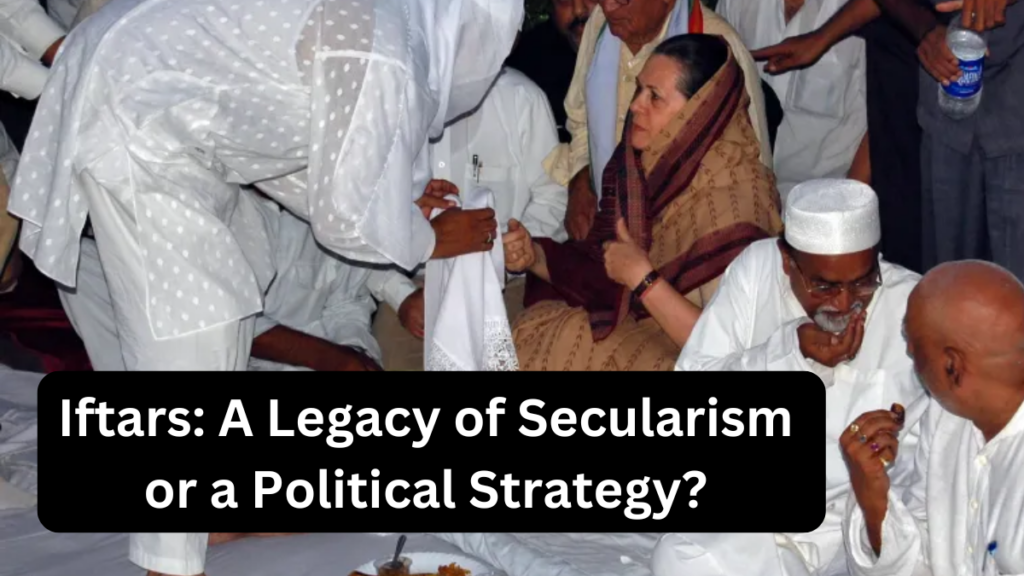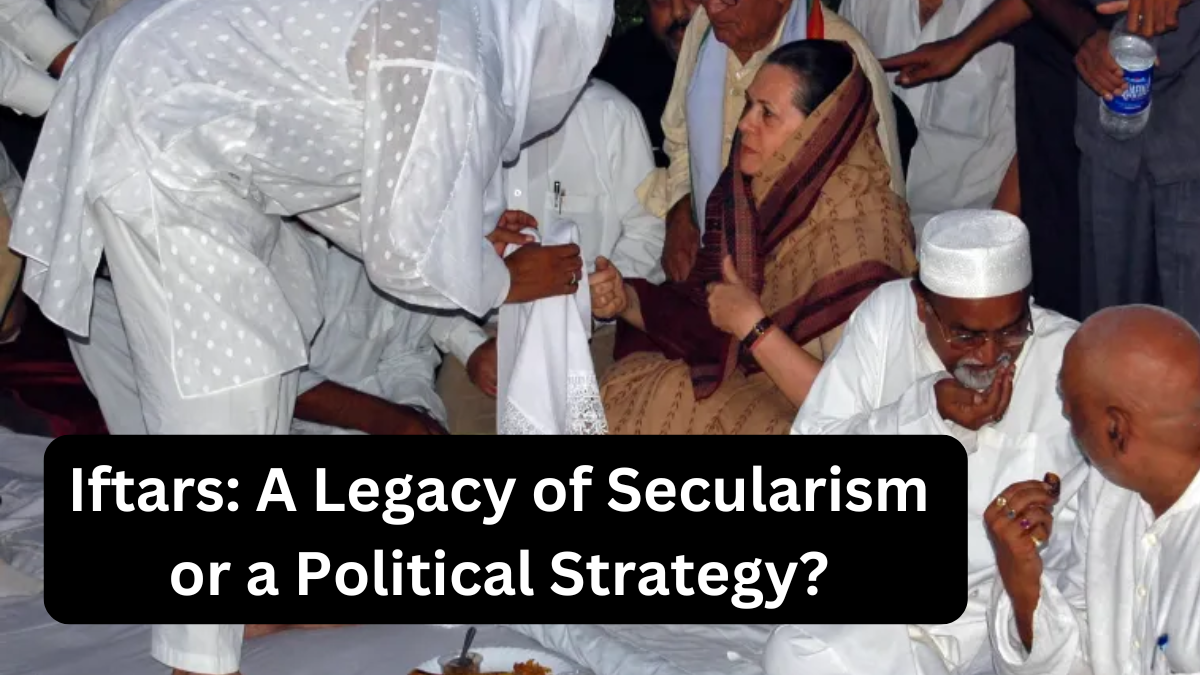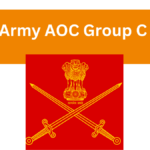Iftar, the meal shared by Muslims to break their fast during the holy month of Ramadan, has a long-standing history of being used by politicians in India as a powerful political tool. While these gatherings began as gestures of unity and a reflection of India’s secular values, they have increasingly become associated with political maneuvering and vote-bank politics. In this article, we delve deeper into how these political iftars evolved, their significance in Indian politics, and the growing criticism they have attracted over the years.

A Historical Moment: The First Political Iftar in 1974
The story of political iftars in India began in 1974, during Ramadan, when tensions between the Shia and Sunni Muslim communities in Lucknow, Uttar Pradesh, were at an all-time high. Hemwati Nandan Bahuguna, the newly appointed Chief Minister of Uttar Pradesh and a prominent leader of the Indian National Congress (INC), found himself in the midst of this volatile situation.
A Truce Over Iftar
To address the rising communal tension, Bahuguna invited Ashraf Hussain, a prominent Shia leader, to a meeting. Hussain initially declined, citing his fasting during Ramadan. However, Bahuguna, recognizing the importance of breaking the fast at the right time, suggested that Hussain break his fast at the Chief Minister’s residence. Hussain agreed, and what followed was a memorable evening.
-
The Menu: The meal consisted of traditional dishes like fruit, sherbet, sheermal, kebabs, and Lucknow’s signature biryani.
-
A Successful Truce: After the meal, the two leaders discussed the conflict and successfully brokered a truce, helping to restore peace in a tense situation.
This gesture, a simple act of sharing a meal, laid the foundation for a political tradition that would endure for decades. Bahuguna’s iftar became an annual event, evolving into a platform for dialogue, politicalIftarance-building, and even reconciliation during periods of unrest.
The Political Tool of the Iftar: A Ritual of Secularism or Exploitation?
Over the years, the tradition of political iftars expanded, and by the 1980s and 1990s, iftar parties became fixtures in the political landscape, organized by leaders from across the spectrum. Politicians began to see the significance of these gatherings, using them not only as opportunities for community engagement but also as platforms to appeal to Muslim voters.
Secular Identity or Political Performance?
On the one hand, political iftars reflect India’s secular identity, as they often feature non-Muslim leaders hosting Muslim guests during Ramadan. This gesture is viewed as an emblem of pluralism and unity, illustrating India’s commitment to maintaining harmony among its diverse communities.
-
Symbolic Acts of Unity: The act of sharing a meal together, especially during a sacred time like Ramadan, sends a strong message of togetherness in a country marked by its diverse population.
However, the growing visibility and frequency of political iftars have raised questions about the authenticity of these gestures. Many critics argue that while the outward appearance of these events may promote inclusivity, they often serve the strategic interests of the political figures hosting them.
The Growing Backlash
Notably, the Bharatiya Janata Party (BJP), led by Prime Minister Narendra Modi, has largely avoided organizing or attending iftar parties. This has added fuel to the debate over whether these events areIftarinely about fostering community ties or simply a political ploy.
Rasheed Kidwai, a political analyst who has attended several political iftars, argues that these gatherings were never created by the Muslim community. “Political iftar parties were not a creation of the Muslims,” he asserts. “It was a kind of religious outreach program, envisaged by non-Muslim political actors with Muslims as guests, often treated as showpieces.”
-
Muslims as ‘Showpieces’: This critique suggests that political iftars can reduce the Muslim community to mere props in a performance aimed at gaining political favor rather than a genuine outreach effort.
The Performative Nature of Iftars
The debate intensifies as more political parties hold these Iftar events, particularly in key states where Muslims form a significant portion of the electorate. In these settings, the meal becomes more than a cultural practice—it transforms into a highly publicized spectacle. Often, these iftars are not just about community solidarity but are designed to send a clear message to voters, showcasing the leaders’ support for the Muslim community while also bolstering their own political standing.
-
Publicity and Political Branding: For many politicians, hosting an Iftar is as much about media coverage and voter perception as it is about the act of sharing food with the community.
The Legacy of Political Iftars
Iftar parties have grown beyond the scope of fostering goodwill to become vital components of political strategy. As elections loom, these events often serve as platforms for political actors to build alliances, forgive past grievances, or pave the way for future collaborations.
-
A Tool for Strengthening Alliances: Political leaders often invite key figures from the Muslim community to strengthen alliances or demonstrate support for their cause.
-
Political Leverage: By hosting influential Muslim leaders, politicians hope to gain favor and influence over Muslim voters, crucial in many constituencies.
However, critics argue that these Iftar events, while seemingly innocent, are a symptom of political rot. They reflect a practice where religion and politics are often intertwined, and religious observances like Ramadan are commercialized for electoral gains.
FAQs:
1. What is the significance of political iftar parties in India?
Political iftar parties are seen as a way for politicians to connect with the Muslim community, using the shared meal to bridge gaps, promote unity, and gain electoral support. These gatherings often reflect the diversity of Indian society and, at times, serve as platforms for political alliances.
2. How did political iftars start in India?
The first political iftar party in India was hosted by Hemwati Nandan Bahuguna, the then-Chief Minister of Uttar Pradesh, in 1974. It came about as an effort to mediate between Shia and Sunni communities during a period of communal tension, signaling the start of a political tradition that persists today.
3. Are political iftar parties a symbol of secularism?
While political iftars may appear to symbolize India’s secularism, many argue that they are more about political performance than genuine community outreach. They are often seen as tools used by politicians to gain favor with Muslim voters rather than an expression of secular unity.
4. Why do critics oppose political iftar gatherings?
Critics argue that political iftar parties often reduce Muslims to symbolic figures in a political game, rather than being a true outreach to the community. These events are seen by some as performative, used to manipulate voters for electoral benefit, rather than fostering real connections or understanding.
Conclusion: A Controversial Tradition
Political Iftar gatherings in India embody both the nation’s rich tradition of secularism and the complex realities of vote-bank politics. While they began as a means of promoting unity and peace, they have evolved into potent tools of political strategy. Whether these iftars will continue to serve as symbols of inclusivity or be seen as performative acts remains to be seen as India navigates its complex political and social landscape.
Pari is a passionate writer known for captivating stories that blend imagination and reality. Inspired by travel, history, and everyday moments, Pari crafts narratives that resonate deeply with readers.




